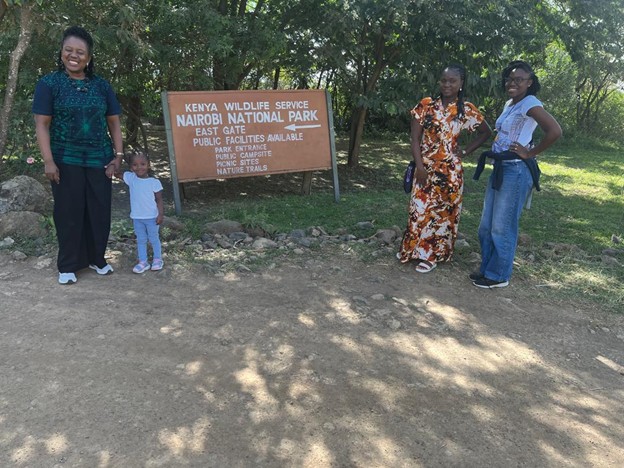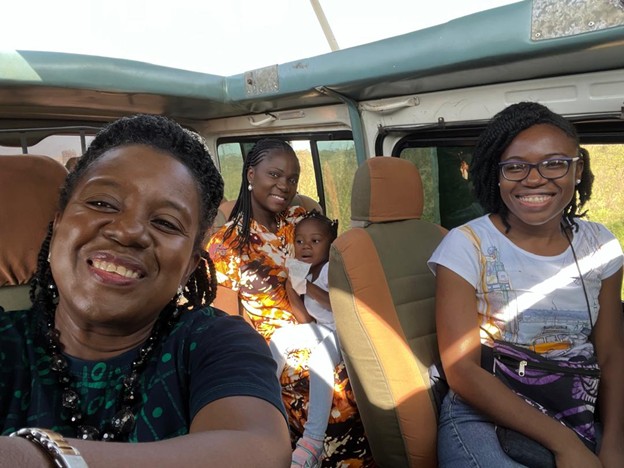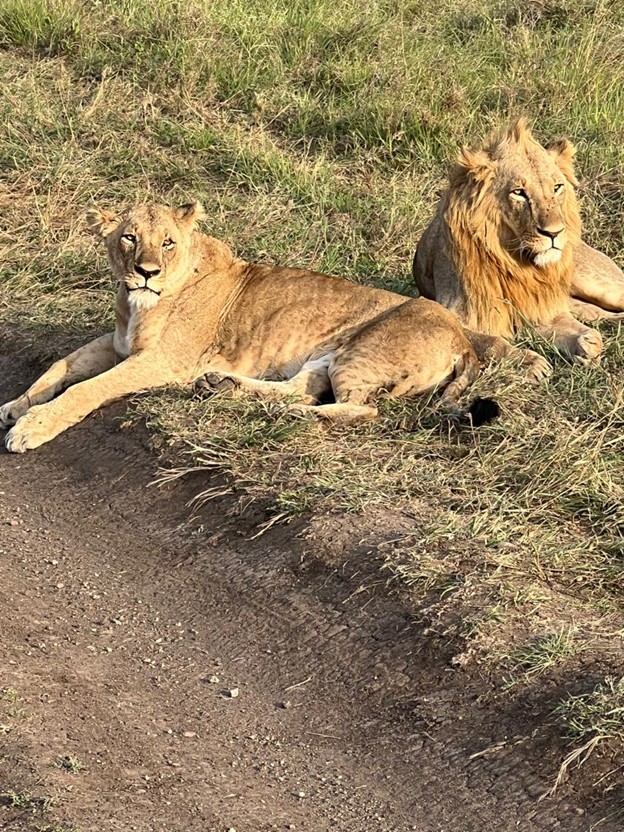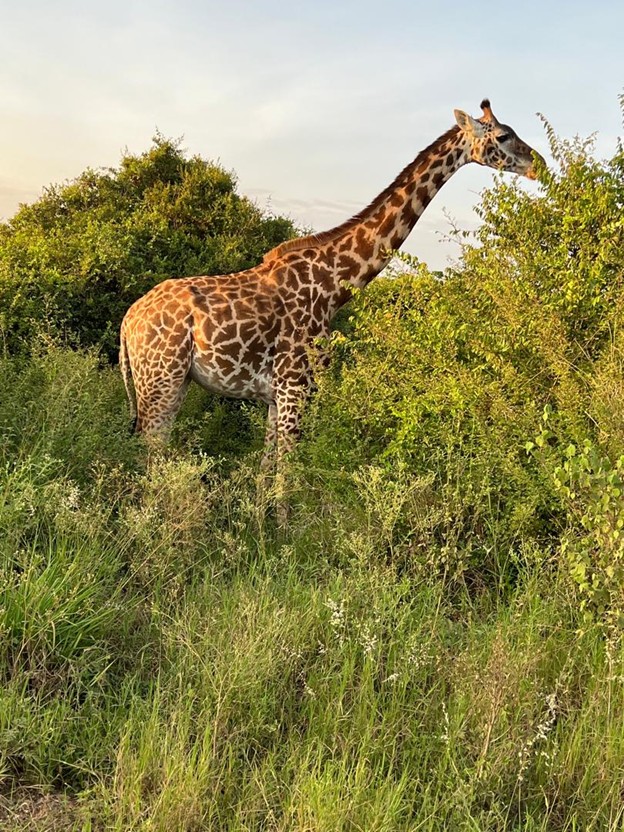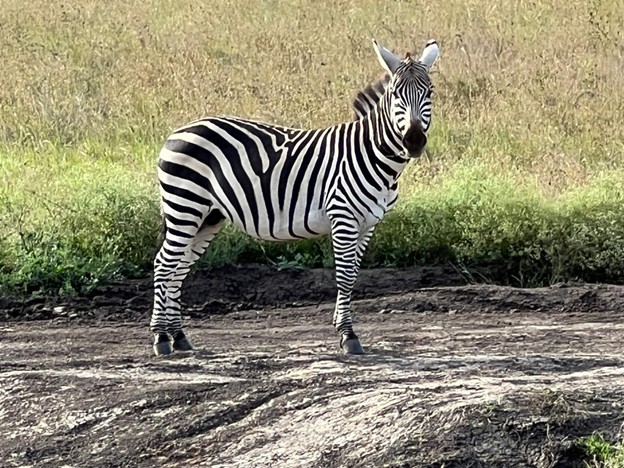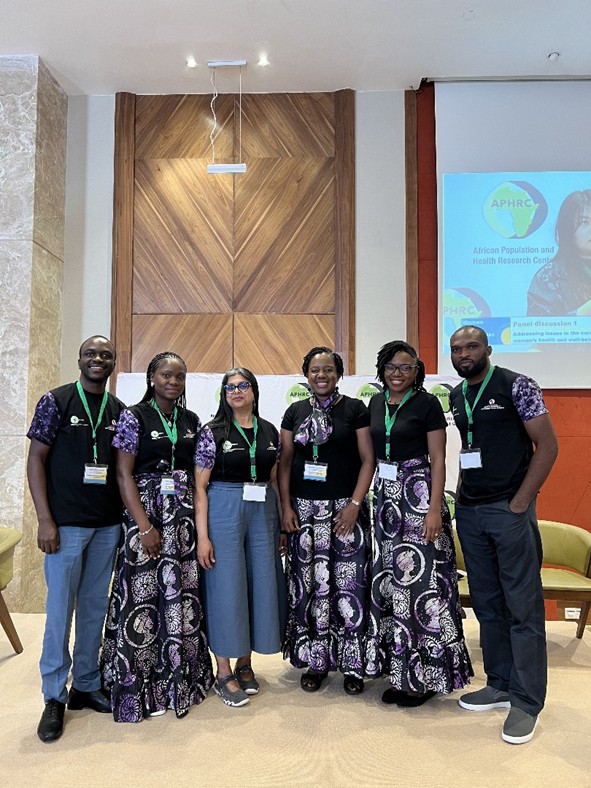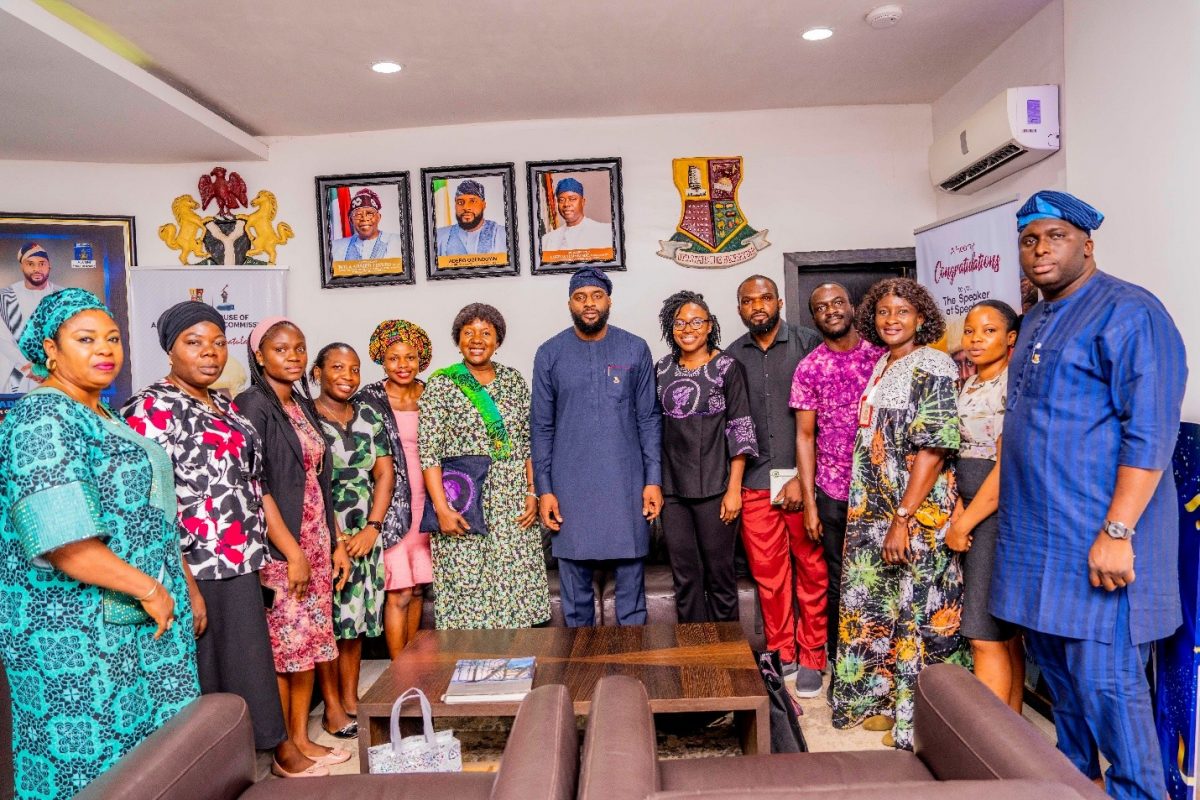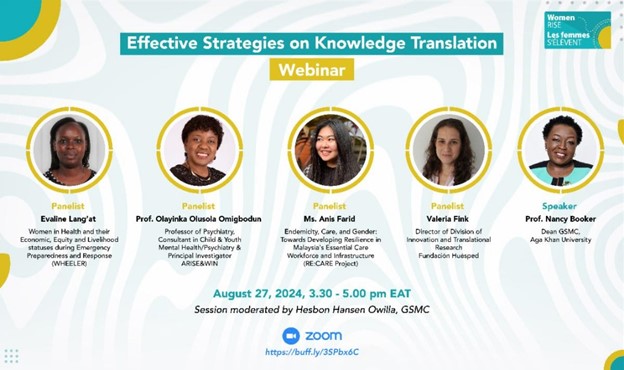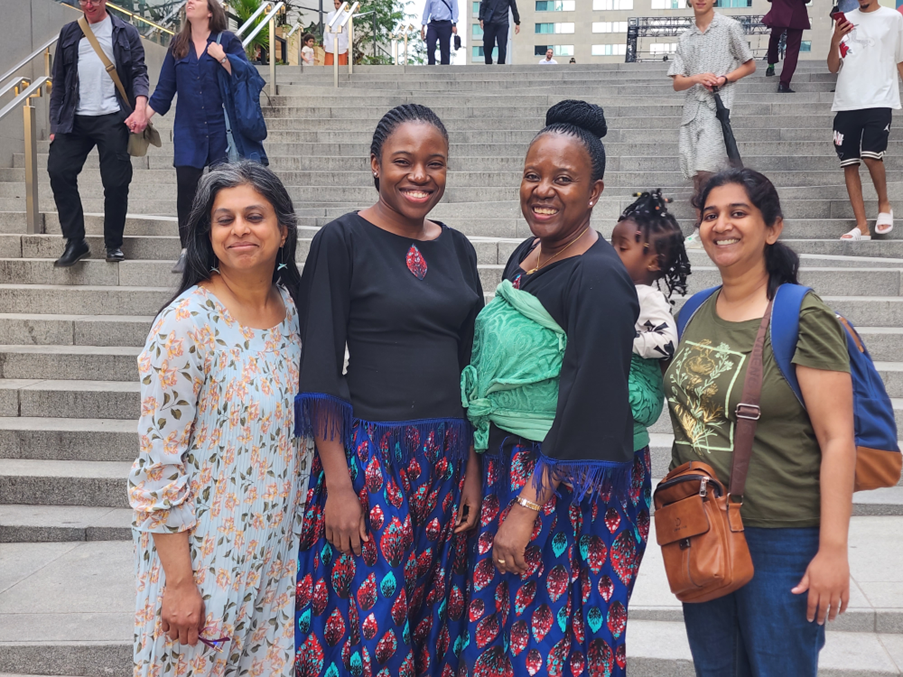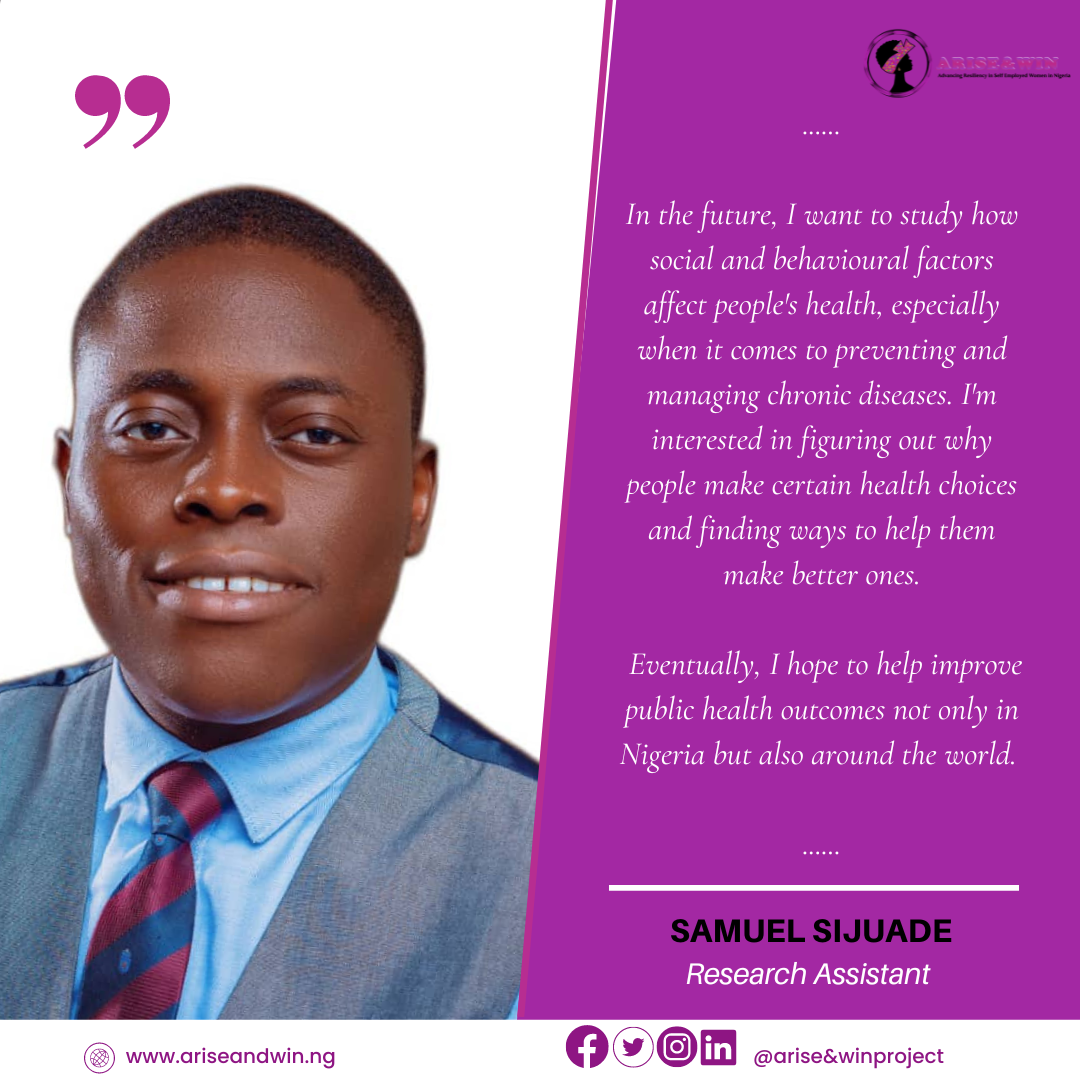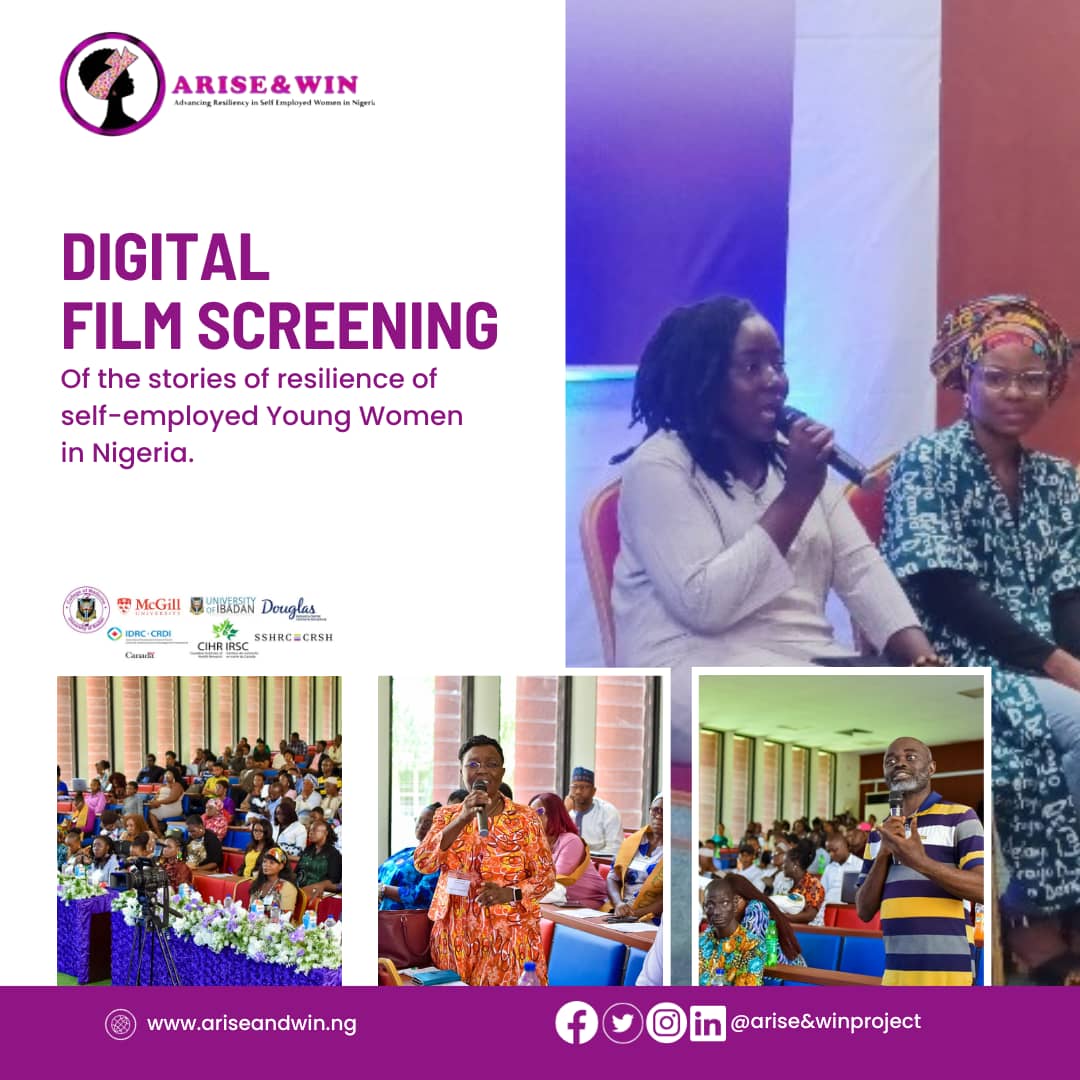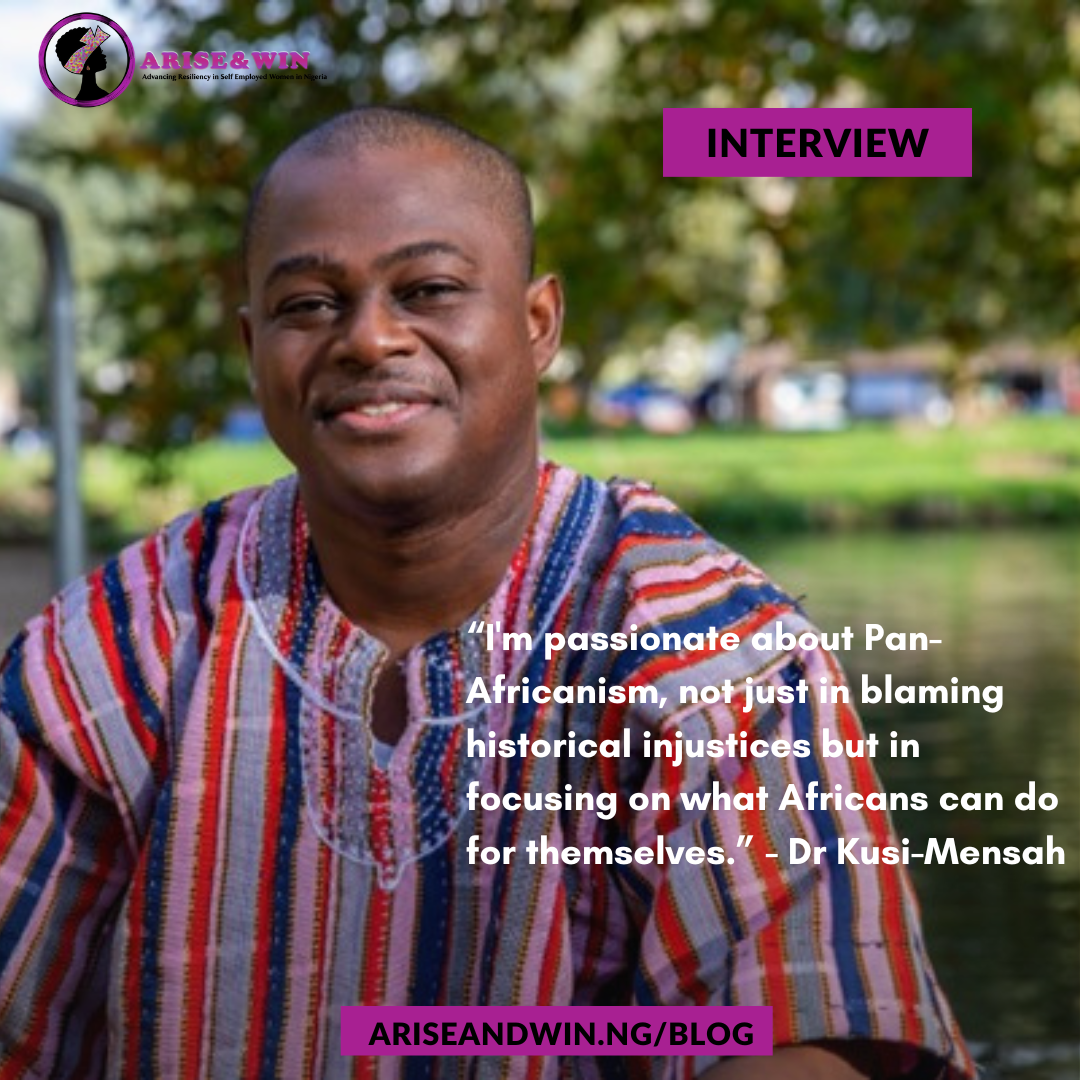By Oluwaseun Abimbola
The WomenRISE Initiative, launched in 2022, was designed to support action-oriented, gender-transformative research examining the intersection of women’s health and their work—both paid and unpaid—within the context of preparing for, responding to, and recovering from COVID-19.
From February 3-5, 2025, the 23 research teams who participated in the WomenRISE Initiative gathered for the End-of-Project Meeting, at the Ole-Sereni Hotel, Nairobi, Kenya. Among the participating research teams was the ARISE&WIN research team, with the full title: “Understanding the Gendered Impact of COVID-19 on Young Self-Employed Nigerian Women and Co-Producing Solutions that Foster Better Systems and Well-being,” and branded as Advancing Resiliency in Self-Employed Young Women in Nigeria (ARISE&WIN). ARISE&WIN contributed key insights into the challenges faced by self-employed women in Nigeria and the interventions that can foster their resilience and empower them to thrive in the midst of disruptive and unexpected life events.
The specific objectives for the meeting as stated by the organisers were to:
- Share evidence that will inform immediate and medium-term solutions and strategies for pandemic preparedness and recovery to improve gender equality and health equity.
- Exchange knowledge and learning about macro- and micro-level factors affecting the relationship between women’s work and women’s health before, during, and after COVID-19.
Day 1: Framing the Conversation and Knowledge Exchange
The meeting opened with remarks from distinguished persons, including His Excellency Christopher Thornley, the High Commissioner for Canada, who stressed Canada’s commitment to inclusive and equitable research that addresses gaps affecting women’s health and well-being. There were additional remarks delivered by Catherine Kyobutungi, Executive Director, and Ms. Anne N. Wang’ombe (represented by Dr. Josephine Obonyo), Principal Secretary of the State Department of Gender and Affirmative Action, Ministry of Gender, Culture, the Arts and Heritage. These speeches reinforced the need for empowering women and integrating their voices into policy and action research.
Two Panel Discussions on the first day examined pressing issues within the care economy and strategies for inclusive and gender-transformative recovery. Participants shared their research findings, highlighting the intersection of women’s work and well-being before, during, and after COVID-19.
In the afternoon, ARISE&WIN actively engaged in breakout sessions focused on knowledge translation. The discussions mooted by team members emphasised the impact of co-production in our formative research and in the development of intervention packages tailored to meet the needs of self-employed women. The screening of digital stories depicting the resilience of Nigerian women was a major highlight. The session also addressed challenges in knowledge translation, such as political leadership changes affecting policymaker collaborations, sustainability concerns, and short project timelines.
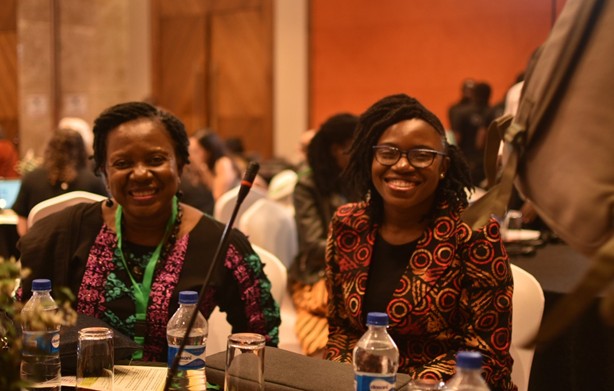
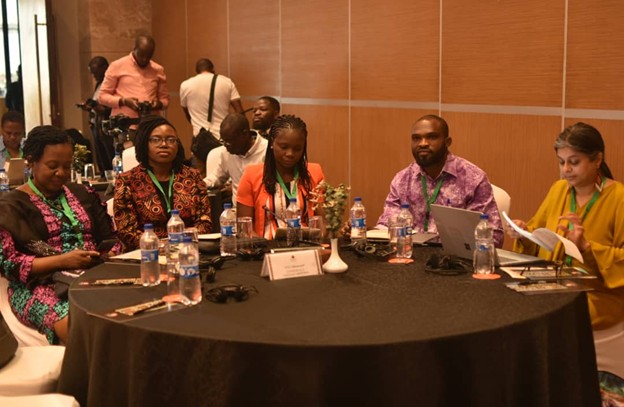
Day 2: Gender-Transformative Policies and Participatory Research
The second day featured robust discussions on gender-transformative policies, economic and labour strategies, and participatory research approaches that can improve the livelihoods and wellbeing of women. The day began with a recap of key takeaways from the sessions of the previous day, followed by opening remarks from Montasser Kamal, Director of Global Health at International Development Research Centre (IDRC), and Dr. Tania Bubela, Provost & Vice President (Academic) at Aga Khan University. Kamal stressed the importance of sustained collaboration beyond the project cycle and urged teams to ensure that research findings continue to shape future initiatives.
A key moment for ARISE&WIN came during the panel discussion on improving the health and well-being of women working in the informal sector. Dr. Iyeyinka Kusi-Mensah, the team’s Lead Postdoctoral Fellow, presented key findings from our study on self-employed Nigerian women. Dr Kusi-Mensah highlighted the value of co-production in designing intervention packages tailored to the specific needs of self-employed women. She argued that multi-pronged interventions integrating capacity building and social protection can strengthen the resilience of self-employed young women, helping them navigate significant life challenges more effectively. Her presentation fed into the broader discussion on participatory research which set the stage for the team’s reflections during the group discussions.
Another pivotal discussion explored the impact of economic and labour policies on women’s health and well-being, drawing lessons on how research evidence can drive policies that protect and empower women. In the afternoon breakout sessions, ARISE&WIN continued its active participation, reflecting on participatory research methodologies. A key takeaway was the participatory model’s ability to empower self-employed women as co-creators of solutions rather than just research participants. Our digital storytelling initiative also came up and it stood out as an innovative research tool, not only for documentation but also for promoting community support and resilience. We mentioned that women involved in our digital storytelling process described it as a cathartic experience that enabled them to process their struggles and build supportive networks.
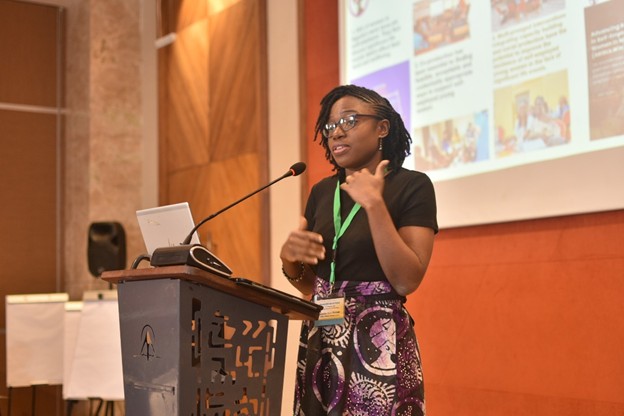
Day 3: Strengthening Collaborations and Policy Influence
The final day of the WomenRISE End-of-Project Meeting focused on reflections from research leaders, including Principal Investigators (PIs), Co-Principal Investigators (Co-PIs), and Decision-Maker Co-PIs. For clarity, the roles of the research leaders at the WomenRISE End-of-Project Meeting can be defined as follows: Principal Investigators (PIs) are the lead researchers responsible for designing, overseeing, and ensuring the successful execution of a research project. They guide the project’s direction, manage resources, and ensure that goals are met. Co-Principal Investigators (Co-PIs) work alongside the PIs, sharing leadership responsibilities and contributing their expertise to shape the research, solve problems, and make key decisions. Decision-Maker Co-PIs are individuals in leadership roles outside academia—such as policymakers, government officials, or community leaders—who actively participate in the research process, ensuring that the research aligns with real-world needs and that its outcomes can influence policies or practices.
The discussions provided valuable insights into fostering effective collaborations between Global South and North researchers and between researchers and policymakers. WomenRISE projects were intentionally structured to have local PIs leading research within their own contexts while partnering with Canadian Co-PIs. This approach ensured equitable partnerships and strengthened local project ownership.
A major takeaway from the discussions was the advantage of having locally embedded PIs. This structure helped projects stay deeply connected to community needs and made research findings more actionable. Decision-makers expressed that this model facilitated stronger policy influence and resource mobilization. The North-South collaboration also provided access to institutional resources, research libraries, and technical expertise, enhancing the capacity of research teams.
While this model had clear benefits, some challenges were also highlighted, particularly regarding bureaucratic and political shifts that affected continuity in policy engagement. While some decision-makers were highly engaged, others showed limited interest. Participants agreed that early role clarification and structured orientations for all stakeholders would help align expectations and maintain project cohesion.
One of the final panel discussions featured decision-makers’ perspectives on how WomenRISE research can drive pandemic recovery policies. They emphasised the importance of relationship management between researchers and policymakers, noting that successful research uptake requires researchers to consider the political dimensions of knowledge translation. Dr. Emmanuel Ankrah Odame, Director of Policy, Planning, Monitoring, and Evaluation at Ghana’s Ministry of Health, highlighted the importance of strategic communication, quoting Jabotinsky: “Influence governments through public opinion, influence public opinion by appealing to justice, influence leaders by appealing to interests.” In other words, researchers must strategically communicate their findings, aligning them with policy priorities and ensuring that their evidence-based recommendations respond directly to the needs of decision-makers and the public. Panellists also discussed the importance of building trust with policymakers, maintaining ongoing engagements beyond the project lifecycle, and ensuring that research addresses real, on-the-ground challenges.
On the third day, the Principal Investigator, Prof. Olayinka Omigbodun, presented souvenirs and the ARISE&WIN’s intervention manuals to representatives of the International Development Research Centre (IDRC) at the meeting. These intervention manuals were based on thorough formative research and developed through a participatory approach, where self-employed women worked alongside subject matter experts and ARISE&WIN core team members to ensure the intervention packages were tailored to meet the needs of self-employed women.
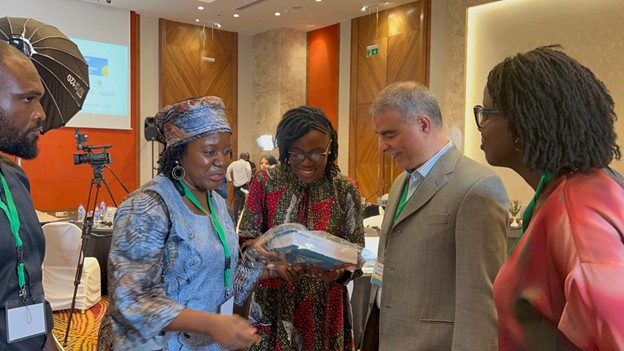
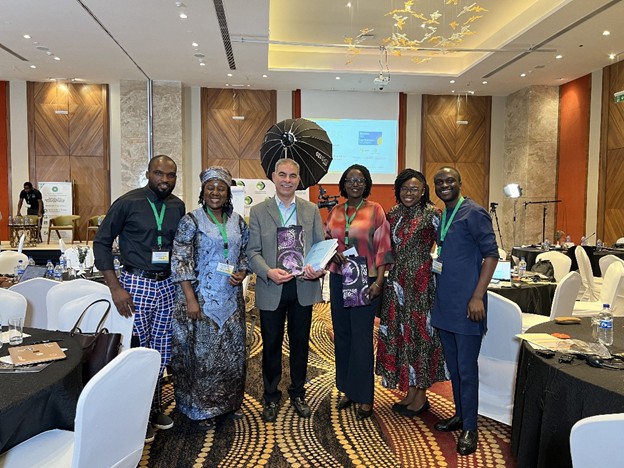
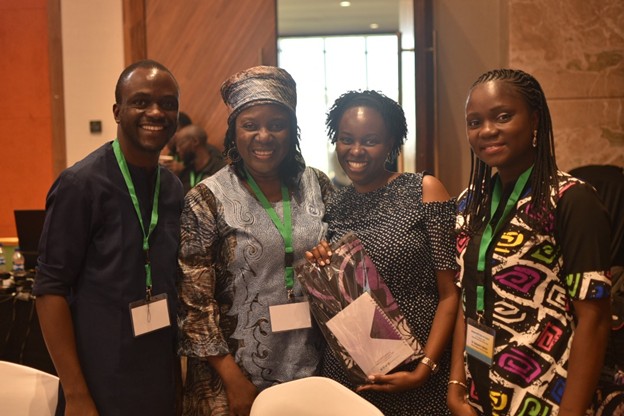
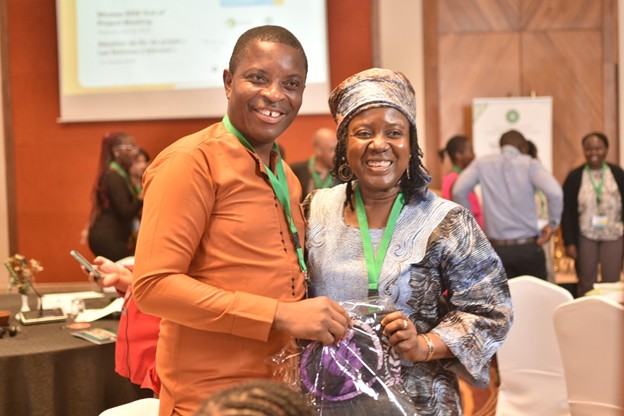
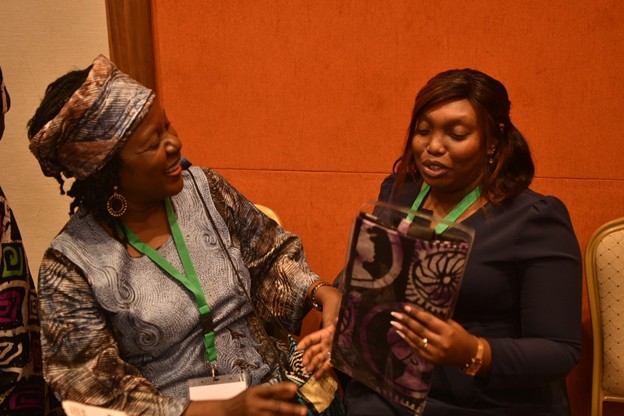
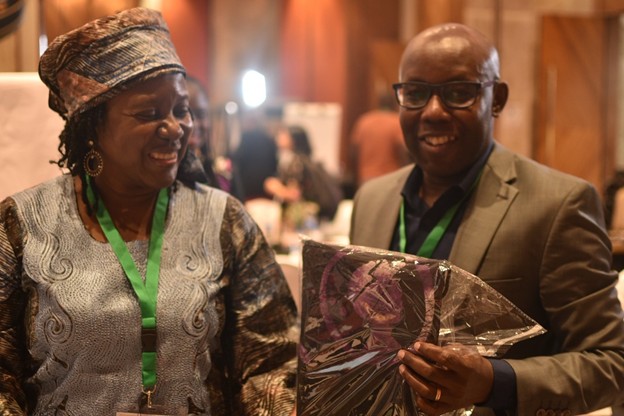
Moving Forward…
As the WomenRISE End-of-Project Meeting concluded, all 23 research teams, including ARISE&WIN, reaffirmed their commitment to advancing gender-transformative research and policy discussions. The three-day gathering strengthened partnerships, provided deeper insights into equitable collaboration frameworks, and reinforced a shared vision to improve women’s health and work globally. The ARISE&WIN team leaves the meeting with renewed momentum, ready to apply these learnings to ongoing efforts supporting self-employed women in Nigeria and beyond.
Pictures from the End-of-Project Meeting
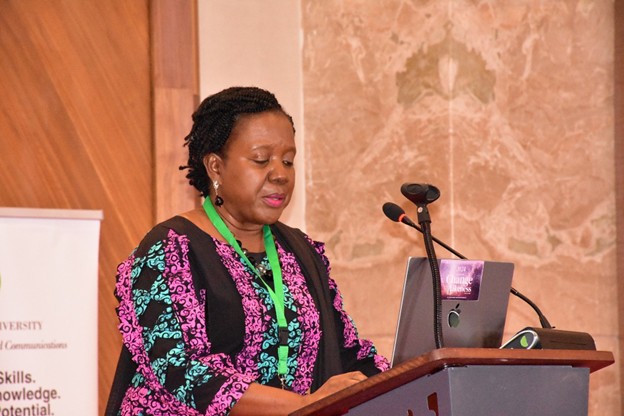
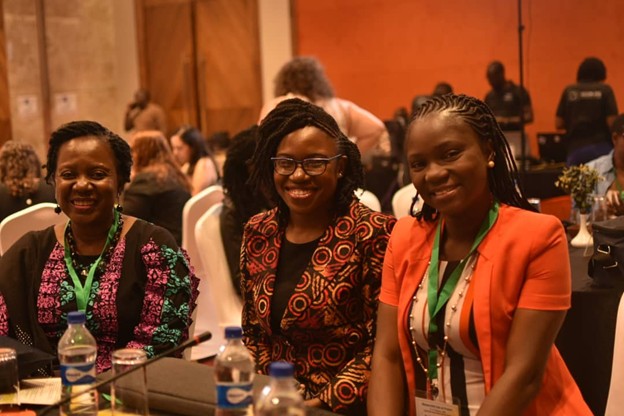
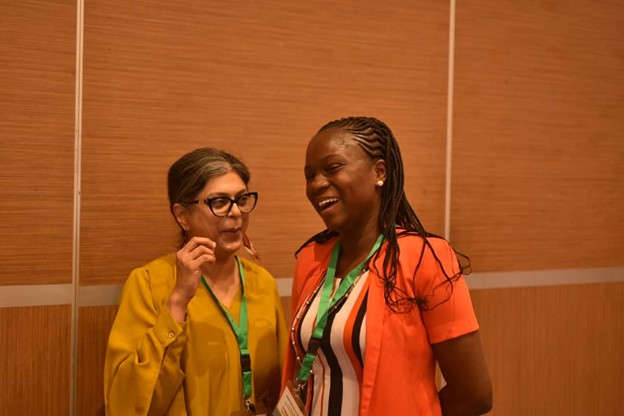
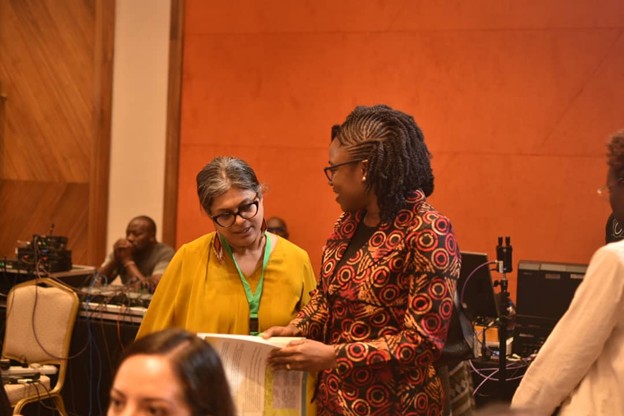
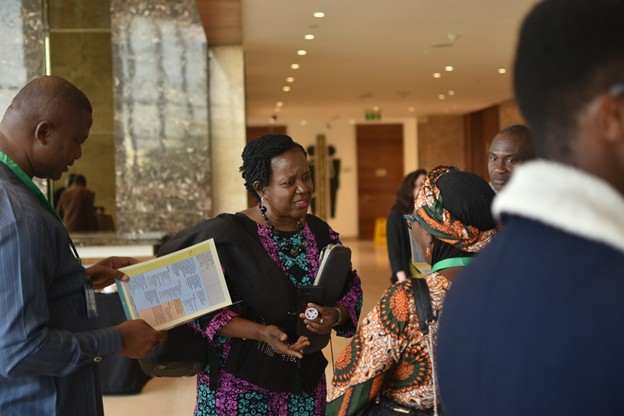
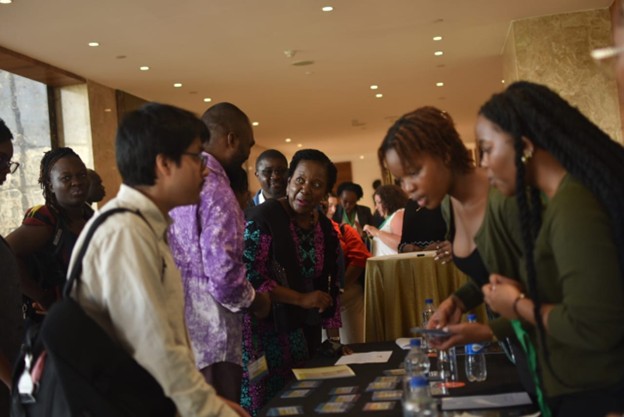
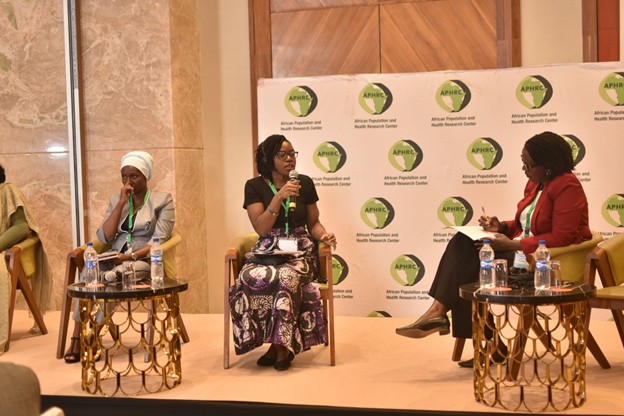
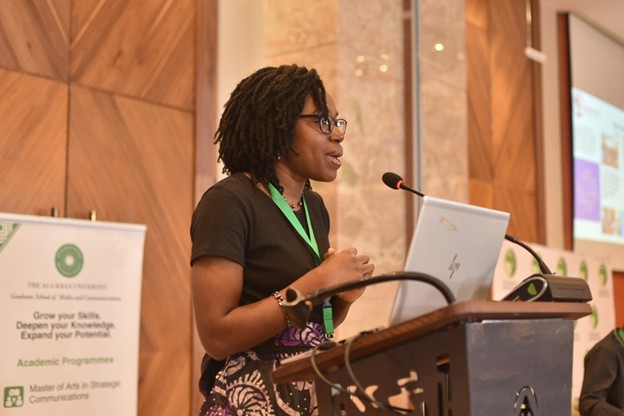
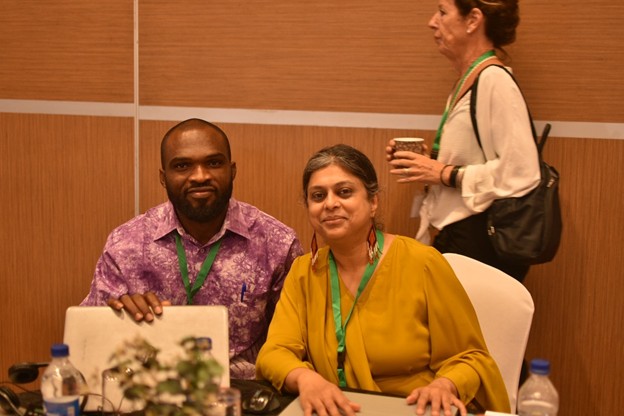
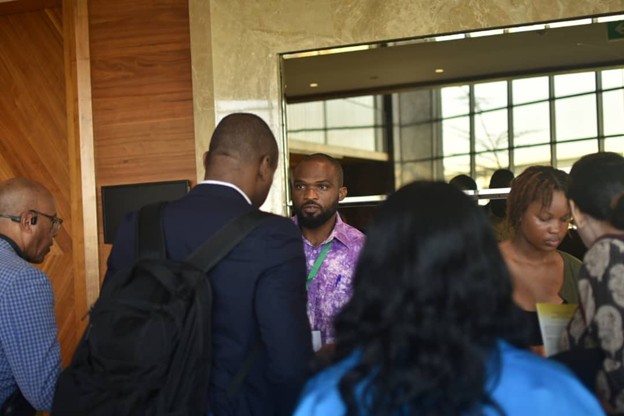
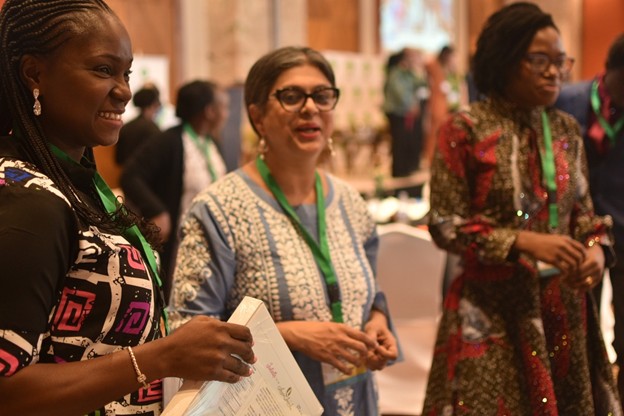
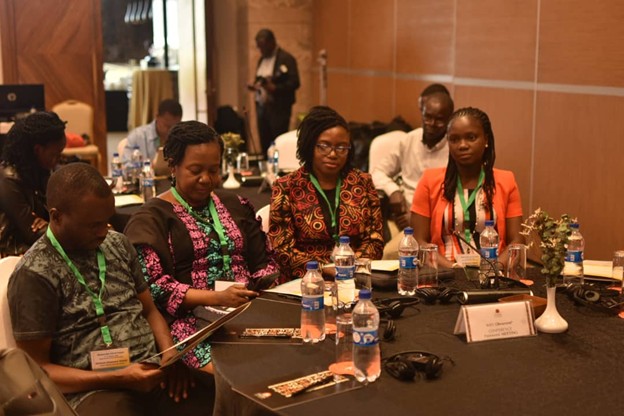
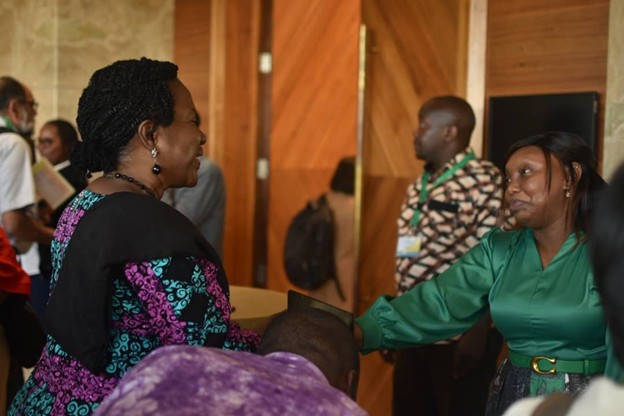
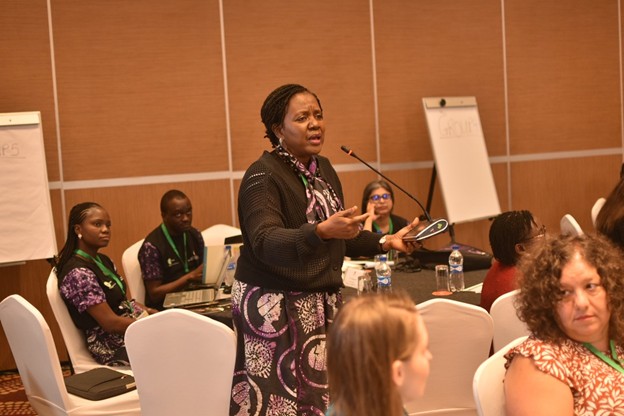
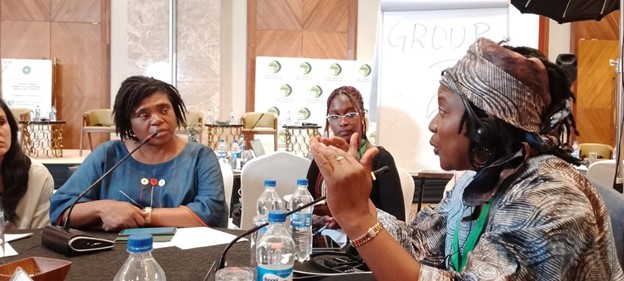
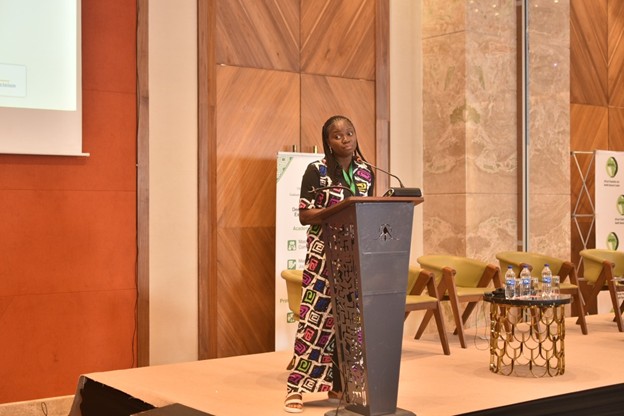
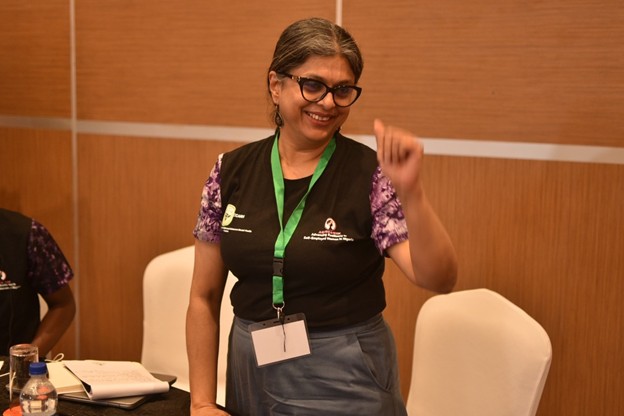
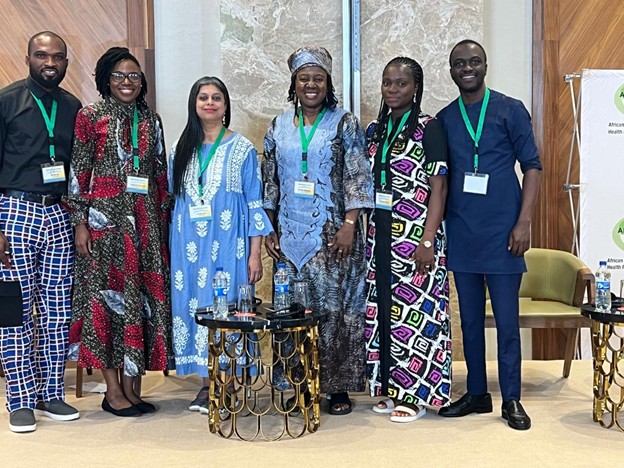
The team also made a quick visit to the Kenya Wildlife Service at the Nairobi National Park in Kenya….
